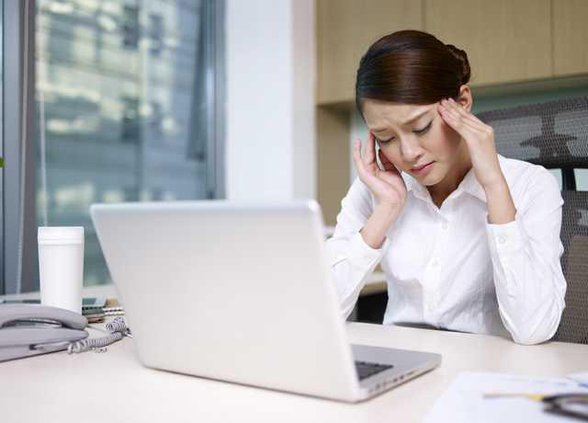Are workers taking the sick days they need? Recent studies suggest not, and it's not good for anyone.
At least half of those who work in public places, such as hospitals and restaurants, reported still going into work when they were sick with a cold or the flu, according to a poll conducted by NPR, the Robert Wood Johnson Foundation and the Harvard T.H. Chan School of Public Health.
And while the food safety issue is well-known, its difficult to get people not to come into work when theyre sick, Kirk Smith, an overseer of foodborne outbreak investigations for the Minnesota Department of Health, told NPR.
So why dont people just stay home? A cited 2011 study, which looked at almost 500 restaurants and their employees in nine states, found that many employees didnt want to overburden their co-workers by staying home. Expected high volume of business were linked to employees coming in sick, while food workers who had available back up were less likely to show up to work ill.
And about a third of working adults say their jobs dont come with paid sick leave, NPR noted in another article on their survey. Some people just cant afford to stay home.
"I don't think anybody really wants to go out there and get people sick or let alone work when they're miserable, but you have to," Anthony Peeples, a former food worker and current bartender, told NPR, which found some people are forced to choose between getting health or getting paid.
The health-care system is built around whats convenient for the doctor rather than the patients schedules and was introduced in a time when doctors were for the occasional injury and infection rather than more consistent care, Dr. Victor Montori of the Mayo Clinic told NPR.
So, how do you tell your place of work that youre sick? Canadas news outlet CBC had some suggestions:
It makes a striking case for universal access to paid sick days as a low-cost strategy for improving health, the institutes vice president and executive director Barbara Gault said, according to Benzinga.
At least half of those who work in public places, such as hospitals and restaurants, reported still going into work when they were sick with a cold or the flu, according to a poll conducted by NPR, the Robert Wood Johnson Foundation and the Harvard T.H. Chan School of Public Health.
And while the food safety issue is well-known, its difficult to get people not to come into work when theyre sick, Kirk Smith, an overseer of foodborne outbreak investigations for the Minnesota Department of Health, told NPR.
So why dont people just stay home? A cited 2011 study, which looked at almost 500 restaurants and their employees in nine states, found that many employees didnt want to overburden their co-workers by staying home. Expected high volume of business were linked to employees coming in sick, while food workers who had available back up were less likely to show up to work ill.
And about a third of working adults say their jobs dont come with paid sick leave, NPR noted in another article on their survey. Some people just cant afford to stay home.
"I don't think anybody really wants to go out there and get people sick or let alone work when they're miserable, but you have to," Anthony Peeples, a former food worker and current bartender, told NPR, which found some people are forced to choose between getting health or getting paid.
The health-care system is built around whats convenient for the doctor rather than the patients schedules and was introduced in a time when doctors were for the occasional injury and infection rather than more consistent care, Dr. Victor Montori of the Mayo Clinic told NPR.
So, how do you tell your place of work that youre sick? Canadas news outlet CBC had some suggestions:
- Dont wait until the last minute to mention something that will impact your performance.
- Take advantage of outside resources such as family, friends and health-care professionals for help and encouragement.
- Dont overshare, particularly if your health problems are unlikely to affect your work performance. Due to the stigmization of it, be especially careful about disclosing mental illness such as anxiety and depression, even if its treated.
- But be honest while exercising discretion. A recent Indiana study suggests that the less you lie, the fewer physical ailments such as headache and nausea youll experience.
It makes a striking case for universal access to paid sick days as a low-cost strategy for improving health, the institutes vice president and executive director Barbara Gault said, according to Benzinga.








